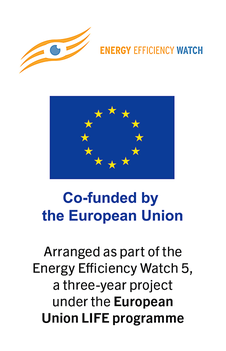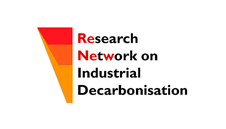Archived pages from 2020
Six panels on decarbonisation
100 presentations based on peer-reviewed papers or abstracts
The panels cover all different aspects on decarbonising industry.
- Policies and programmes to drive transformation
- Sustainable production towards a circular economy
- Energy management – in real life
- Technology, processes and systems
- Business models, finance and investment in the age of digitalisation
- Deep decarbonisation of industry
Efficiency key to climate change mitigation
The 2015 Paris Agreement aims at keeping global temperature rise in this century well below 2 degrees Celsius above pre-industrial levels and to pursue efforts to limit the temperature increase even further to 1.5 degrees Celsius. Globally, industry accounts for about a third of final energy demand. In the EU, industry accounts for about 25% of final energy demand mainly due to energy-intensive industries and specific energy-intensive products and processes (e.g. steel, cement, ethylene) making the sector and its products critical for the achievement of European climate targets. However, a focus on these energy intensive sectors must no exclude other, non-energy intensive sectors (manufacturing, food processing etc). All industrial sectors are important in the energy transition towards a low-carbon economy.
Regardless of the end-use sector, energy efficiency is key to decarbonisation, productivity gains, energy security, improved competitiveness and socio-economic benefits. Efficiency improvements also reduce costs associated with maintenance, production stand-still and insurance fees. And, importantly, this will have positive employment benefits throughout the economy.
Fast decarbonisation a formidable challenge
The decarbonisation of industry presents a formidable challenge. In a few sectors, such as iron and steel, new carbon-free processes may lead to more electricity being used. Just going for renewables is not enough. By increasing efficiency across all sectors and end-uses we can free up resources to make this transition affordable and manageable.
Looking beyond carbon and energy
Industrial Efficiency 2020 explored current and emerging trends in industry, such as new business models, digitalisation, industry 4.0, the circular economy and resource efficiency, and discuss the significance of these trends for delivering decarbonisation. The multiple benefits of energy efficiency are of particular interest.
Panel 1. Policies and programmes to drive transformation
 |
 |
Panel leaders: Hannes Mac Nulty, Mac Nulty Consulting, France, and Jenny Chu, The Climate Group, U.K. Read more about Panel 1.
Panel 2. Sustainable production towards a circular economy
 |
 |
Panel leaders: Andrea Herbst, Fraunhofer ISI, Germany, and Simone Zanoni, Università degli Studi di Brescia, Italy. Read more about Panel 2.
Panel 3. Energy management – in real life
 |
 |
Panel leaders: Hannes von Knorring, CIT Industriell Energi AB, Sweden, and Reinhard Ungerböck, Grazer ENERGIEAgentur GmbH, Austria. Read more about Panel 3.
Panel 4. Technology, processes and systems
 |
 |
Panel leaders: Anna Realini, Ricerca sul Sistema Energetico – RSE S.p.A., Italy, and Simon Harvey, Chalmers University of Technology, Sweden. Read more about Panel 4.
Panel 5. Business models and finance in the age of digitalisation
 |
 |
Panel leaders: Diana Wang, Institut for Energy Efficiency in Production (EEP), University of Stuttgart, Germany, and Rod Janssen, Energy in Demand, U.K. Read more about Panel 5.
Panel 6. Deep decarbonisation of industry – technologies, strategies & implications for policy, industry and research
 |
 |
Panel leaders: Marlene Arens, Lund University, Sweden, and Stefan Lechtenböhmer, Wuppertal Institute for Climate Environment and Energy, Germany. Read more about Panel 6.












